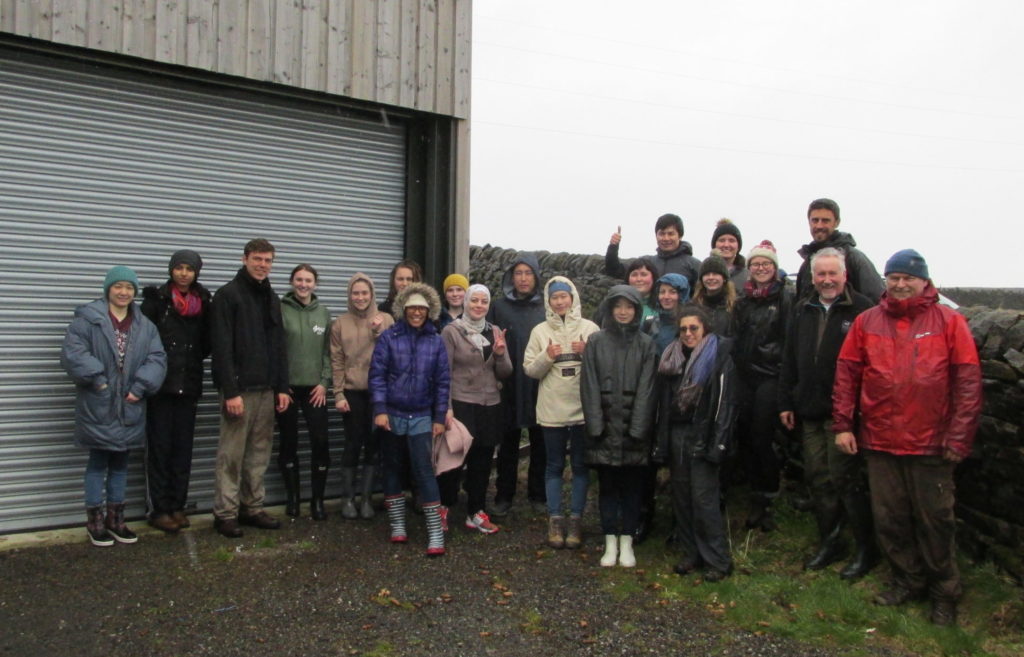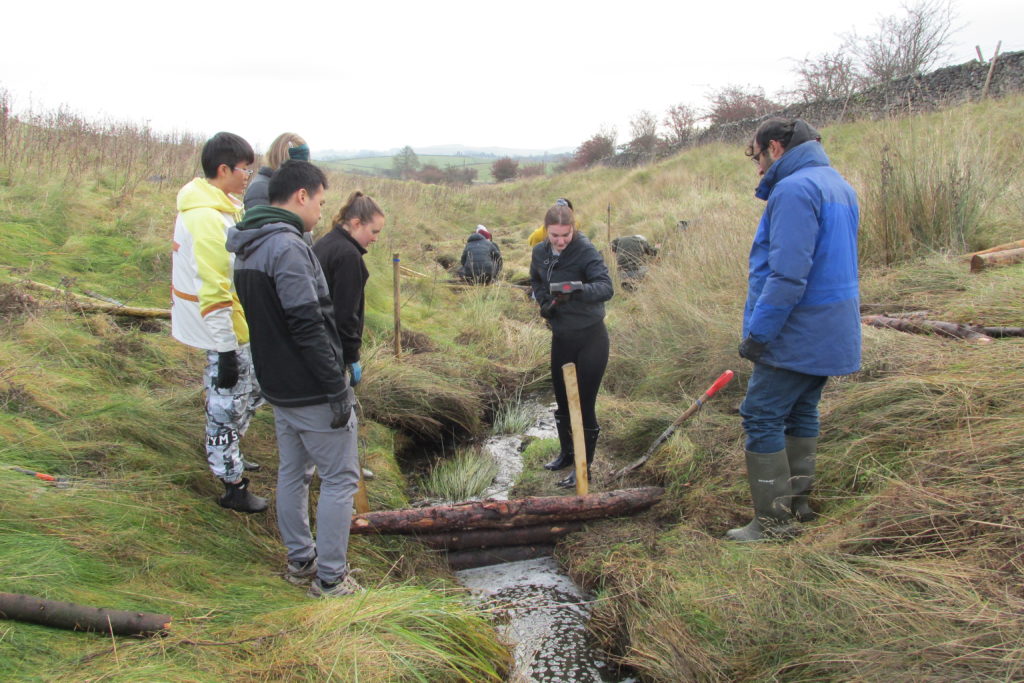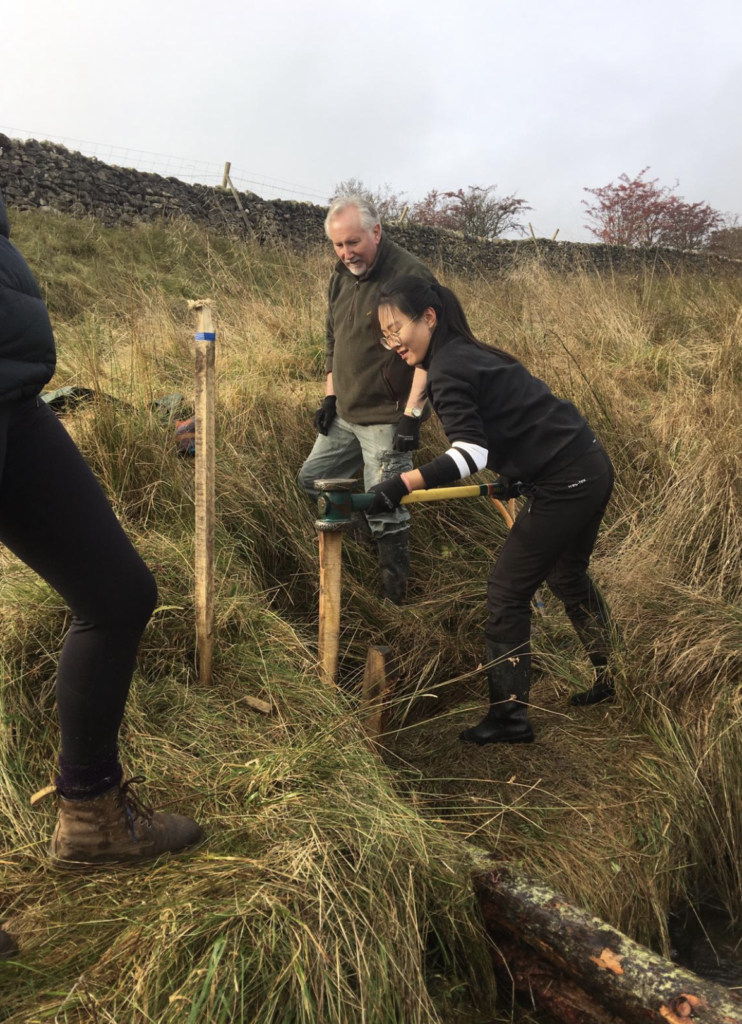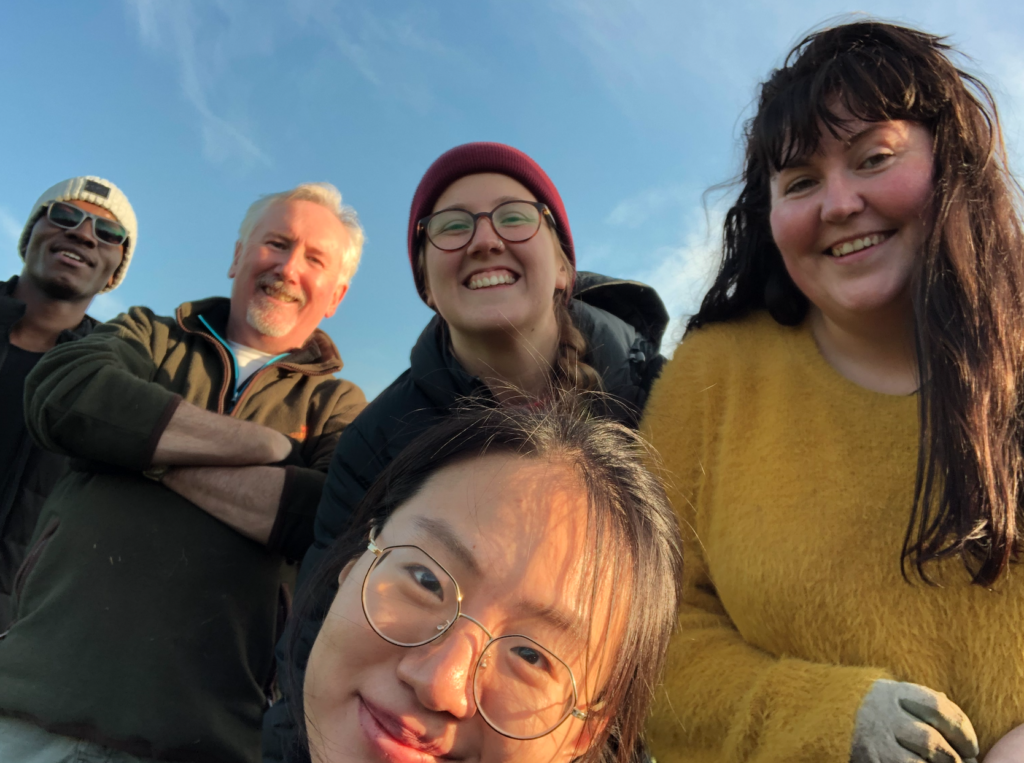As well as the various natural flood management (NFM) projects we have running within the iCASP programme at the moment, we also provide information and guidance to other organisations with their NFM projects.
A key aspect of this is providing advice about initial and ongoing monitoring of NFM measures. This means it’s possible to understand not only the impact the measures have had, but also to influence and inform the design, planning and installation of future measures, on the same and other sites to maximise their effectiveness. We also gather data and carry out analysis on the measuring and monitoring taking place.
Footage released in March from some sites in the Upper Calder valley showed the quantities of water that NFM measures have had to deal with over the past winter, especially when storms Ciara and Dennis arrived on our shores. The video footage below was captured by University of Leeds researchers as part of work being carried out for the National Trust who have been installing NFM measures across some of their land holdings.
But we don’t just provide scientific advice and guidance on measuring, monitoring and installing NFM; through volunteers from the University of Leeds the measures are also being installed in different locations. One of the great things about NFM measures are that they can be installed by members of the community with appropriate guidance and management. Staff and student volunteers who live, study and work at the University of Leeds are involved with several NFM and tree planting schemes in Yorkshire.
Volunteering doesn’t just benefit the communities downstream of where the NFM measures have been installed, but the health and well-being of the volunteers as well. Over the last six months, volunteers from Australia, China, Malawi, Pakistan, Spain, UK and USA have helped build leaky dams and plant trees. The University set up the volunteering scheme to provide staff and students with an opportunity to get out and about, to meet new people and learn new skills all while doing valuable work in local communities near the university.


Photo credit: Mike Leonard
XiaoXiao Ma, a PhD student researching the poet John Clare, has volunteered on workdays organised by Yorkshire Wildlife Trust to install leaky dams and plant trees. While her research would not seem the most obvious fit with building leaky dams, she was keen to get first-hand experience of working on the land and connecting with nature and her research has subsequently benefited through her growing understanding of the things John Clare was writing about. She outlines two benefits she got from being a volunteer:

Photo credit: Xiaoxiao Ma
“When I work in the field, when I use tools such as a hammer, a rake, or a spade to interact with the land, I can feel the interconnectedness between humanity and nature. We live on the land. Our life relies on the land. We are interdependent
Being a volunteer enables me to make new friends. I met Lee Galston in my first wild work day event and since then we have been very good friends. On the day when we first me, we found we shared common interests such as literature, walking, and nature. We fit in well with each other.”
Xiaoxiao Ma, University of Leeds
Lee Galston who works in the University’s Accommodation Team has also attended volunteer training days and recalls one led by Don Vine from Yorkshire Wildlife Trust as he outlined the work to be done and ensured this was done safely and effectively:
“Don was incredible at what he did, and a huge part of why I’ve enjoyed coming along to the volunteering days. He was great at teaching us how to do the tasks on the day, but he was also generous with his vast knowledge of nature (trees and water, he told me, were his thing, he wasn’t too bothered about birds). Volunteering with him has genuinely changed the way I look at the natural world.
My favourite conversation we had with Don was actually the day Xiaoxiao and I met. She’s writing her PhD dissertation on the poet John Clare and he got really excited talking about Clare’s poetry, which is very nature centric. He told us that he and some friends would play a game of bingo based on Clare’s Shepherd’s Calendar, which has a poem for each month of the year, where they’d try to take a photo of anything they saw that was mentioned in that month’s poem.”
Lee Galston, University of Leeds

Photo credit: XiaoXiao Ma
Student volunteers at University of Leeds, drawn from 18 different countries around the world, have contributed to installing natural flood management measures on several sites and tree planting projects that have been informed by researchers to ensure they are sited appropriately for the role they are to play. Some of the measures are part of high profile flood risk reduction schemes, such as the Leeds Flood Alleviation Scheme, developed and funded in response to past flood events.
While this news article was being written, we heard the very sad news that Don Vine, who coordinated the activities of many of the volunteers on Yorkshire Wildlife Trust NFM workdays, had suddenly passed away a few weeks previously. He led volunteer workdays that the University was involved with for many years and clearly made an incredible impression on the people he worked with as became clear when I contacted volunteers and volunteer coordinators to write this news piece. The leaky dams he built with volunteers, and the trees planted to help reduce flood risk to communities across the region, remain dotted across the landscape he clearly loved and felt passionate about.
News articles about different NFM projects that iCASP and University of Leeds have contributed to:
Footage of water levels rising during storms Ciara and Dennis
